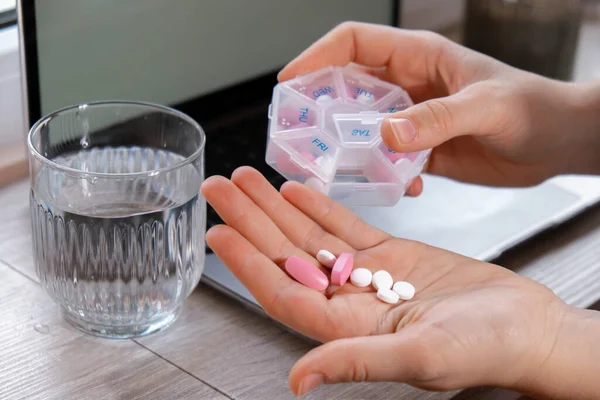If you want to learn more about how your systemic health affects your oral health, contact Gary Horblitt, D.D.S., in Fairfield, CT. Our team takes a holistic approach to your care, helping you get comprehensive treatments that benefit both your mouth and body. Contact us at (203) 335-1011 for more information and appointments!
From discoloration to gum issues, various drugs can influence the well-being and appearance of your teeth. In this blog post, our dentist in Fairfield, Connecticut, explores some common medications and their potential effects on dental health.
Antibiotics
While antibiotics are crucial for treating bacterial infections, they can also have unintended consequences on oral health.
Some well-known antibiotics can cause tooth discoloration, including tetracycline and doxycycline. This yellowing or browning of the teeth is particularly common in children whose teeth are still developing. However, adults are also likely to develop discolored smiles with prolonged antibiotic use.
Antihypertensive Medications
Hypertension is a fancy way to say ‘high blood pressure.’ Antihypertensive medications aim to lower blood pressure. However, many of these medications (such as calcium channel blockers and diuretics) may cause gum overgrowth.
This condition can lead to swollen and sensitive gums, making it challenging to maintain proper oral hygiene. If left untreated, it may result in more severe dental issues, including periodontal disease.
Antidepressants
Certain antidepressant medications [particularly tricyclic antidepressants and selective serotonin reuptake inhibitors (SSRIs)] can contribute to dry mouth or xerostomia.
Saliva plays a crucial role in preventing tooth decay by neutralizing acids and aiding in the remineralization process. According to our dentist in Fairfield, Connecticut, a lack of saliva can increase the risk of cavities, gum disease, and other oral health issues.
Antacids
Chronic use of antacids containing aluminum or calcium can lead to acid rebound effects, causing an increase in stomach acid production.
The acidic environment can erode tooth enamel over time, leading to tooth sensitivity and an increased susceptibility to cavities.
Steroids
Doctors often prescribe corticosteroids for inflammatory conditions. However, these medications can affect oral health by suppressing the immune system.
This suppression may increase the risk of oral infections, including fungal infections like oral thrush. It’s crucial for individuals taking steroids to maintain rigorous oral hygiene practices and undergo regular dental check-ups to prevent and detect potential issues early.
Antihistamines
Antihistamines are drugs that people can take to help alleviate the effects of allergies. Although these drugs offer relief from itchy eyes and runny noses, they can cause dry mouth.
As our dentist in Fairfield, CT, mentioned earlier, reduced saliva flow can compromise oral health, leading to an increased risk of cavities, gum disease, and bad breath.
Individuals using antihistamines should stay hydrated and consider sugar-free gum or lozenges to stimulate saliva production.
Meet Our Dentist in Fairfield, Connecticut, Today
While medications play a vital role in managing various health conditions, it’s essential to be aware of their potential impact on dental health. If you’d like to learn more about how your medications affect your smile, contact Gary Horblitt, D.D.S. You can reach our dentist in Fairfield, Connecticut, online or at (203) 335-1011.

